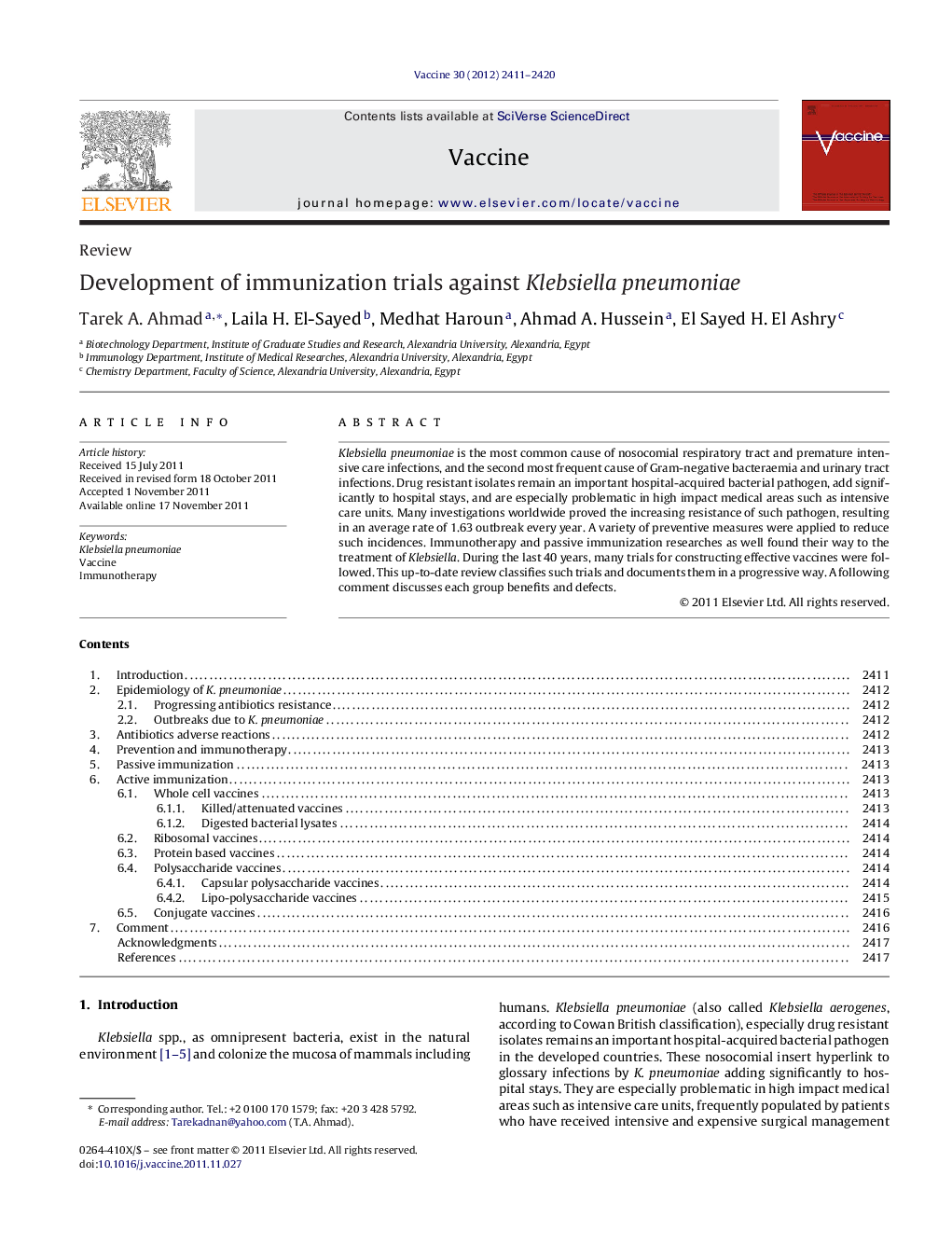| Article ID | Journal | Published Year | Pages | File Type |
|---|---|---|---|---|
| 2402672 | Vaccine | 2012 | 10 Pages |
Klebsiella pneumoniae is the most common cause of nosocomial respiratory tract and premature intensive care infections, and the second most frequent cause of Gram-negative bacteraemia and urinary tract infections. Drug resistant isolates remain an important hospital-acquired bacterial pathogen, add significantly to hospital stays, and are especially problematic in high impact medical areas such as intensive care units. Many investigations worldwide proved the increasing resistance of such pathogen, resulting in an average rate of 1.63 outbreak every year. A variety of preventive measures were applied to reduce such incidences. Immunotherapy and passive immunization researches as well found their way to the treatment of Klebsiella. During the last 40 years, many trials for constructing effective vaccines were followed. This up-to-date review classifies such trials and documents them in a progressive way. A following comment discusses each group benefits and defects.
► K. pneumoniae is an emerging antibiotic resistant uncontrollable pathogen. ► Passive immunization and immunoenhancers were not practical to prevent K. pneumoniae. ► Variable CPS-serotypes limited their use in vaccine production. ► Limited LPS-serovars favored their use by all recent research. ► LPS-based conjugate vaccines could be the most promising for K. pneumoniae prevention.
